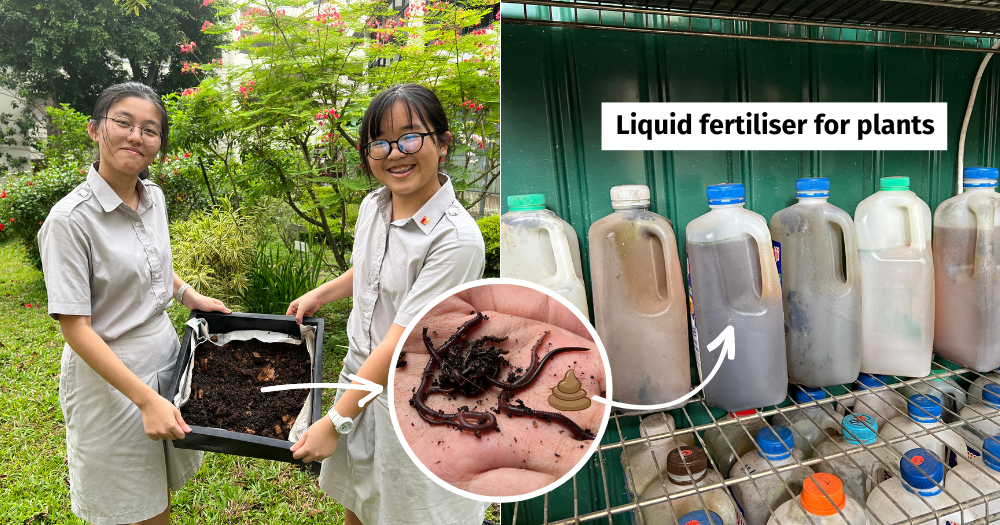Follow us on Telegram for the latest updates: https://t.me/mothershipsg
Think of worms, and chances are you will probably squirm.
However, at National Junior College (NJC), worms have become handy helpers.
Worm factories
In eight worm factories made up of 45cm-by-45cm trays stacked atop each other, colonies of worms are kept well fed by students.
The worm factories are part of long-running efforts by students from Greenlink Club (Greenlink), a co-curricular activity (CCA) at NJC, to save food scraps from the waste bin by turning them into "gold".
 Two of the eight worm factories.
Two of the eight worm factories.

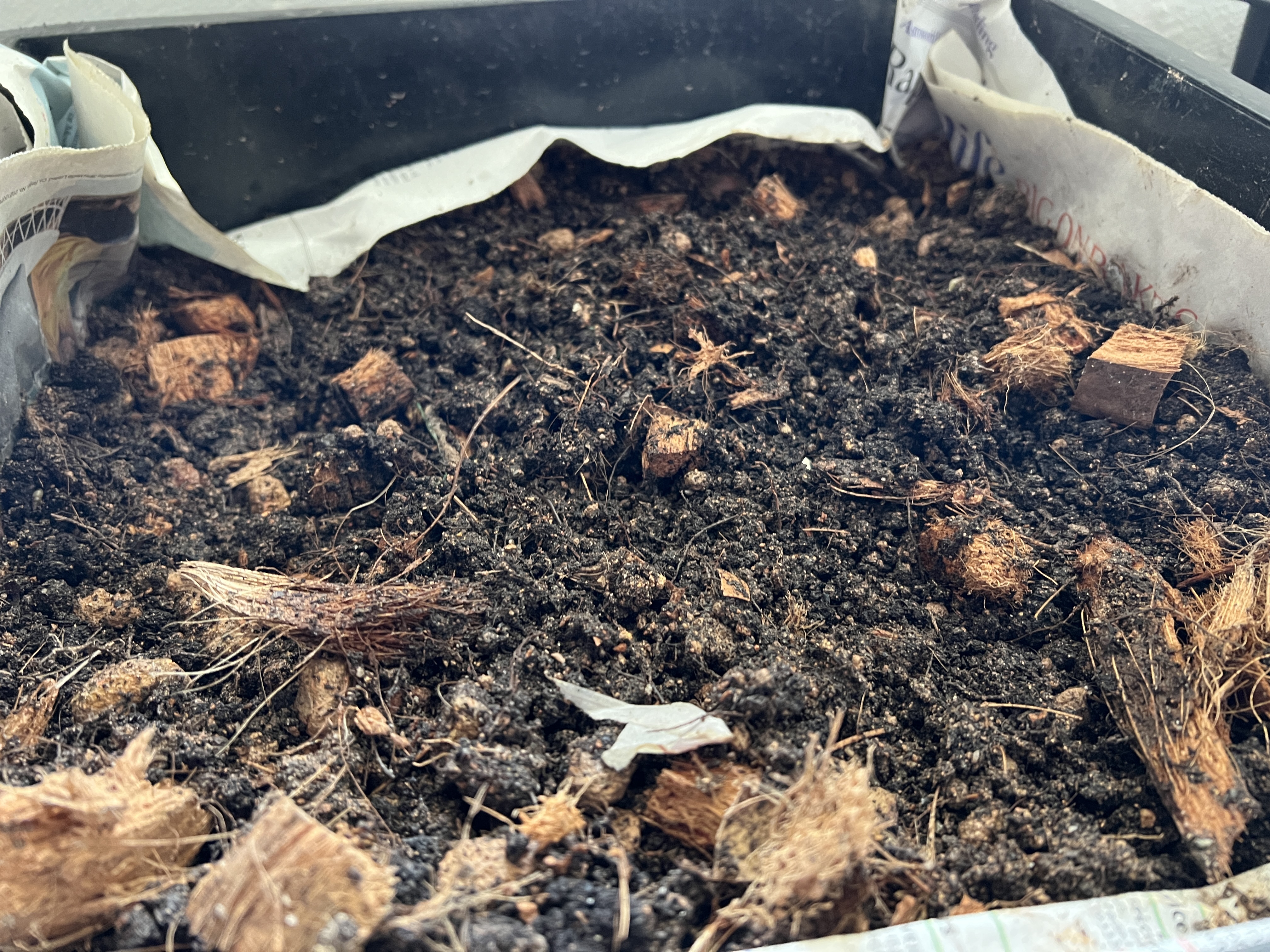 The soil which worms call home.
The soil which worms call home.
The gold in question is worm tea --- a liquid fertiliser made out of worm manure.
It is produced through vermicomposting, a process whereby food products are decomposed through the digestive activity of worms, leaving behind nutrients for soil.
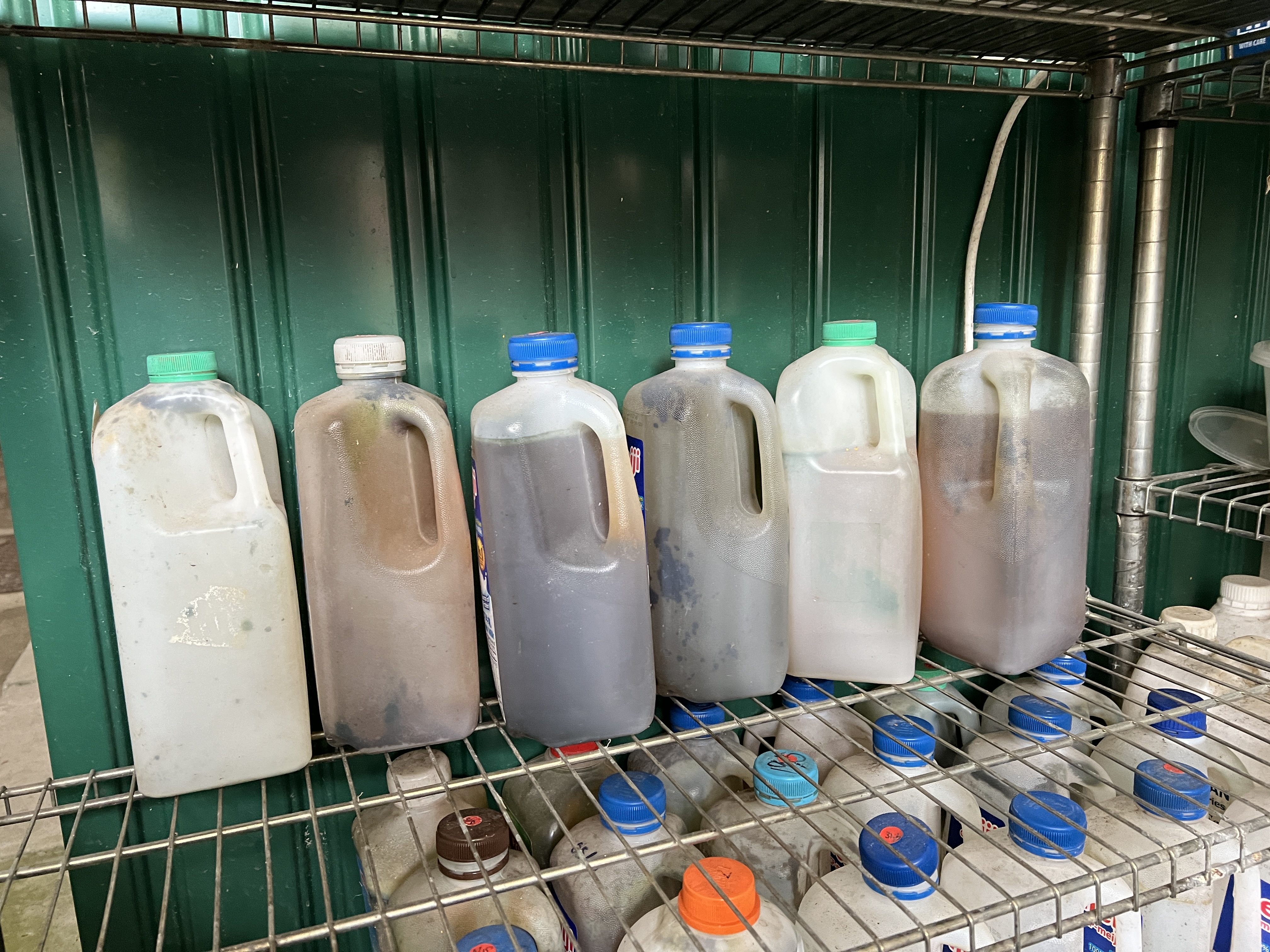 Bottles of worm tea.
Bottles of worm tea.
This year marks the seventh year of the vermicomposting efforts at NJC, kept up by members of the environment-focused CCA.
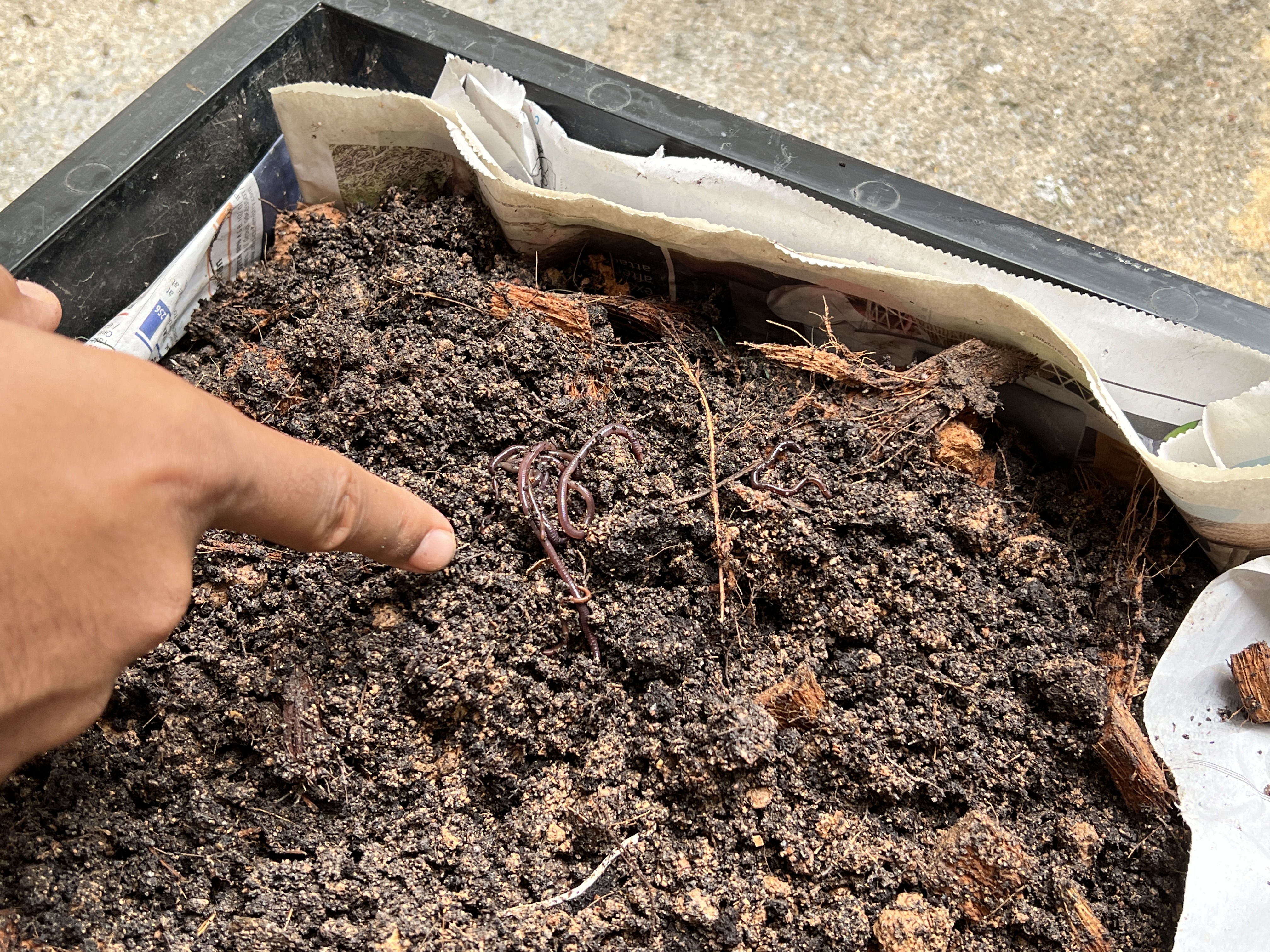
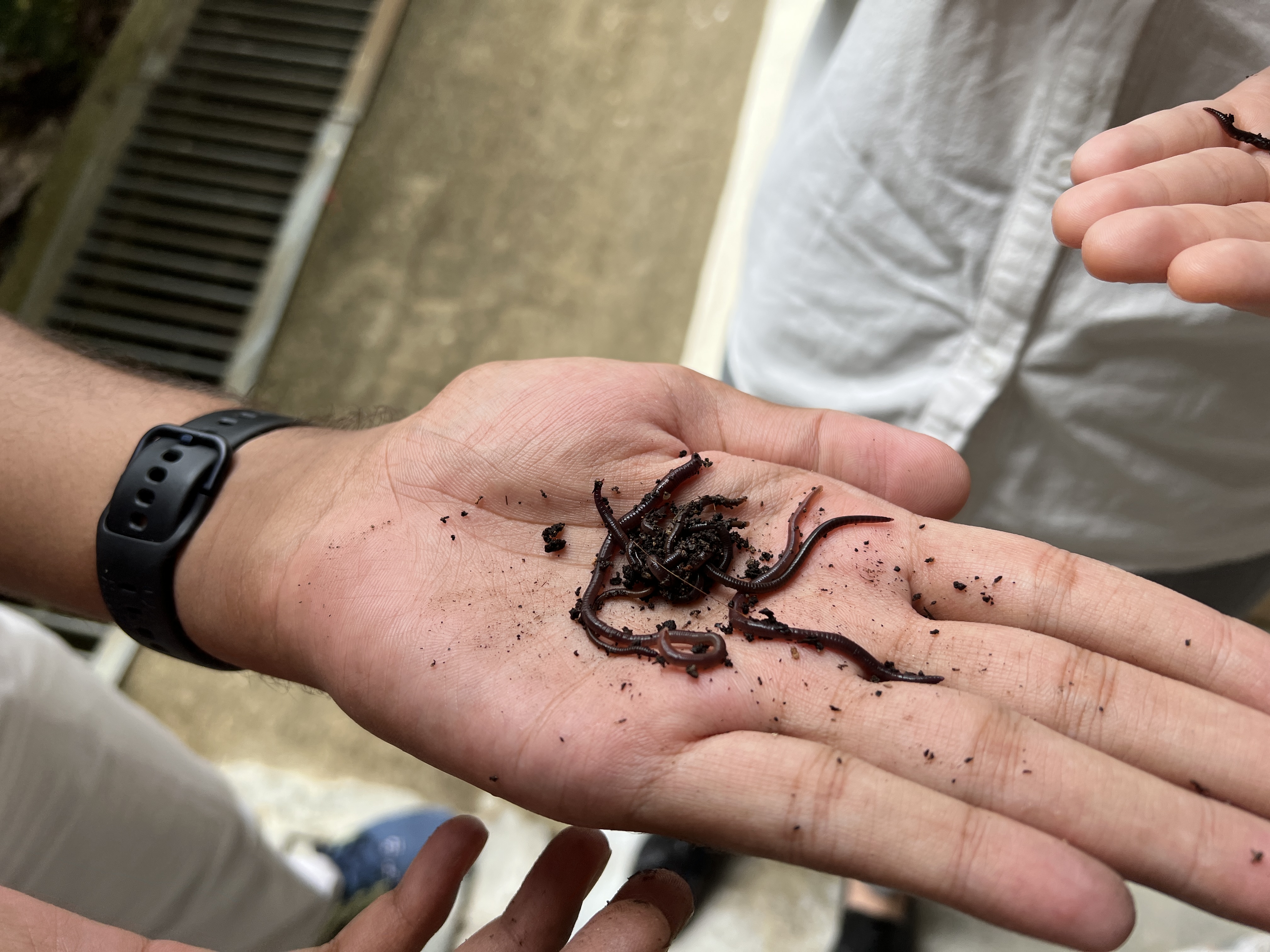 Malaysian blue worms.
Malaysian blue worms.
Why worms?
The idea to breed worms on the school compound to treat food scraps was first mooted way back in 2016.
"The original idea came from the nephew of one of our teachers," Lee Shan Shan, teacher-in-charge of Greenlink, recalled.
Lee has been teaching biology at NJC for 14 years.
Lee's colleague has a nephew who was running his own worm factory at home in Singapore. He learnt about Vermicomposting during his years in Australia.
The nephew shared the knowledge with Lee's colleague when the latter visited.
At that time in 2016, the teachers were already pondering ways to reduce the amount of food scraps that went to waste.
"Our students don't waste food, but food is already wasted before preparation or before it gets onto your plate," Lee said.
Considered other methods
Before settling on vermicomposting, they had tried a rotating compost bin, though that was inefficient.
"It means somebody needs to turn it. Also, it can smell, because you have natural fermentation," Lee explained.
Commercial-grade food digesters would cost S$10,000, so that was out of the question too.
When the novel idea of vermicomposting was first shared, the teachers took interest in it.
They pitched it to the school's senior leadership, who gave the teachers the blessings to "go for it".
The students become masters
"Straight off, we want the students to be involved," Lee said.
After the teachers laid the foundations by conducting the initial research and purchasing the equipment, they worked to impart the knowledge to the students.
The vermicomposting initiative is mainly cared for by Green Advocates, who are appointed class representatives from the Secondary One cohort.
Each cohort would have eight Green Advocates, one from each class in the cohort.
"So, when we first started out we actually didn't really know a lot of this. We were like little kids who wanted to explore more," Melody Tia, who is 18 and in her final year at NJC, admitted.
Tia started out as a Green Advocate when she was in Secondary One, and later decided to join Greenlink when she graduated from junior high to senior high at NJC.
Though unacquainted with worm ecology at first, Tia delighted in the fact that mentors were aplenty.
Greenlink seniors play a key role in the vermicomposting efforts.
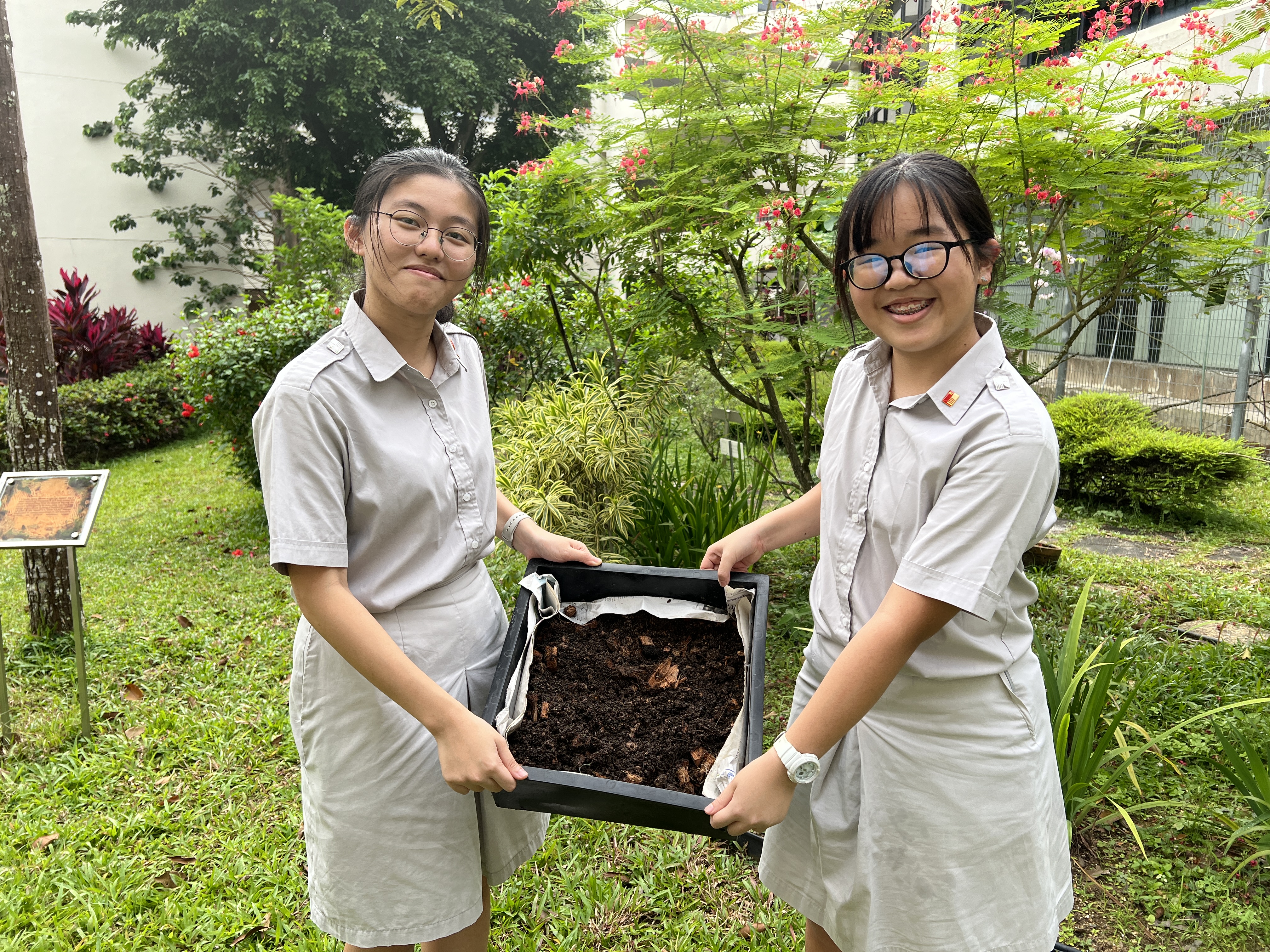 Tia (right) and her friend Lin Kejun, showing off one part of a worm factory.
Tia (right) and her friend Lin Kejun, showing off one part of a worm factory.
"The project is passed down from our seniors. They were actually the ones that started the project and passed on the knowledge to us," Tia shared.
Certain practices currently adopted by Greenlink, such as serving the worms blended food instead of whole food scraps, were actually derived from research done by preceding batches of students.
Coming full circle, Tia and her fellow Greenlink members now serve as mentors to fresher Green Advocates.
Student-led projects
Apart from handing down the basics, the current batch of students have also taken on the responsibility of conducting their own experiments to improve on the vermicomposting process.
"We have a lot of side projects to help us dive deep and research about these worms because a lot of information online might tell us what's best for the worms, but we might not necessarily see the results," fellow Greenlink senior Wang Yitian, 18, pointed out.
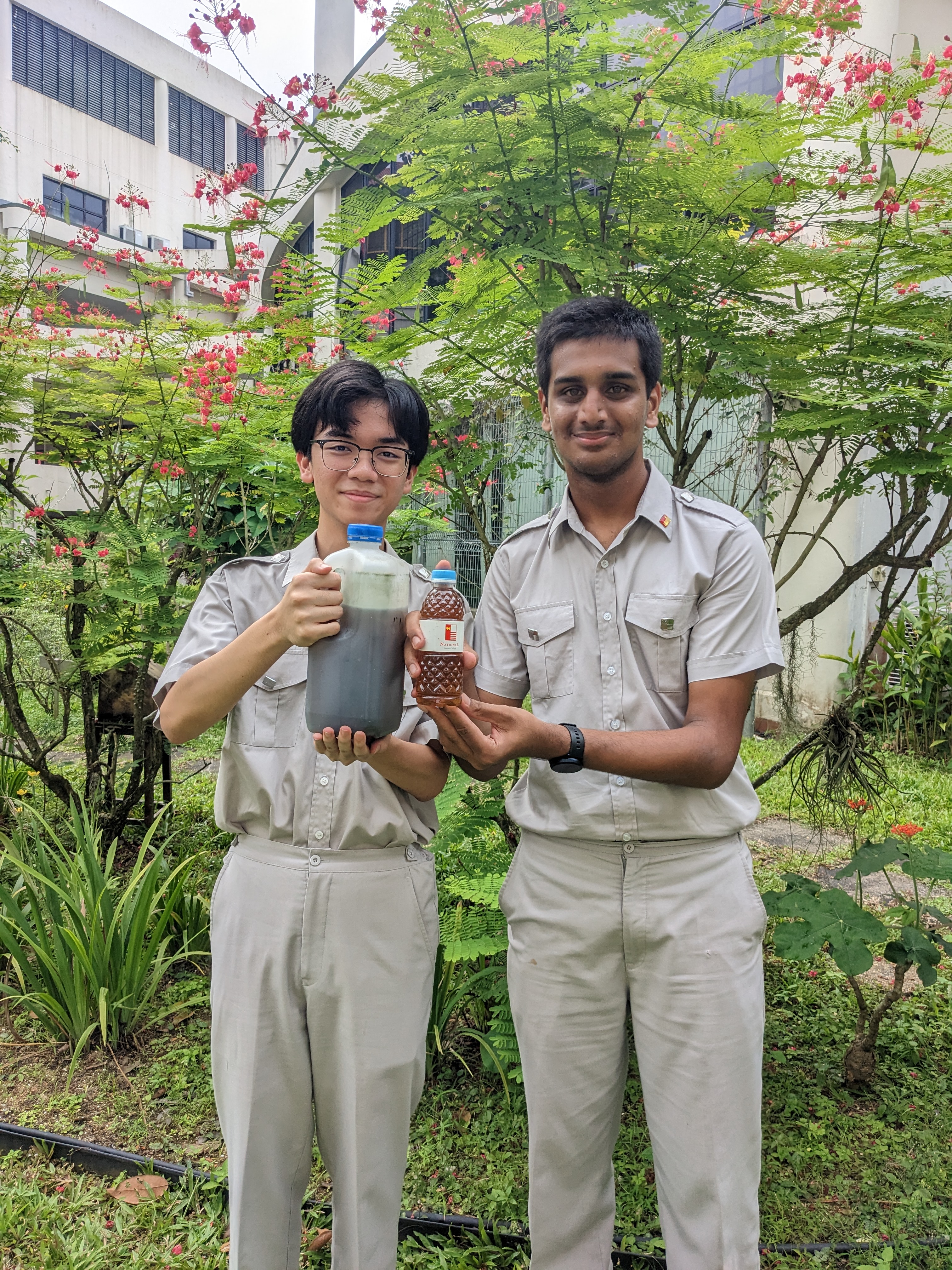 Wang Yitian (left) and Abishek Sivaraj (right) showing off bottles of worm tea.
Wang Yitian (left) and Abishek Sivaraj (right) showing off bottles of worm tea.
Wang explained that these projects are the brainchild of the students themselves.
"We'll brainstorm and then we'll fill up a proposal with the ideas we want to propose. Then, we'll send it to the teachers to check," Wang elaborated.
Projects that Wang, Tia and their friends worked on include a worm breeding project and worm diet studies.
Both serve practical purposes that help to keep the vermicomposting initiative going.
For example, because worms are expensive to buy off the market, successfully breeding worms on their own will help to save on costs.
Having their own source of worms also helps in their efforts to share the vermicomposting practice with the wider community.
As Greenlink at NJC work towards turning food scraps into nutrient-rich worm tea, they are also working on spreading the word about vermicomposting.
Greenlink students have been involved in outreach efforts in the form of workshops and exhibitions.
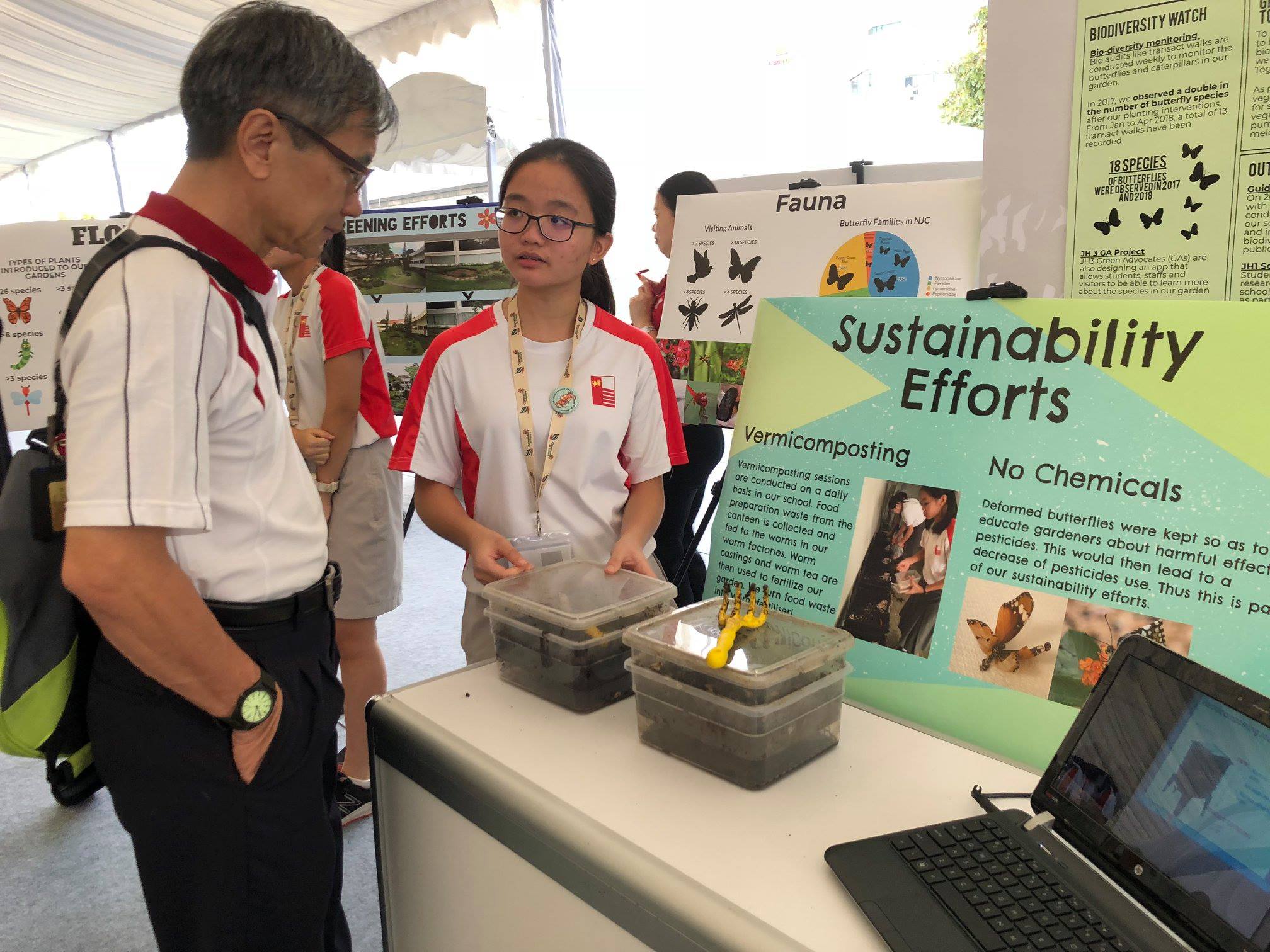 Image via NJC/Facebook.
Image via NJC/Facebook.
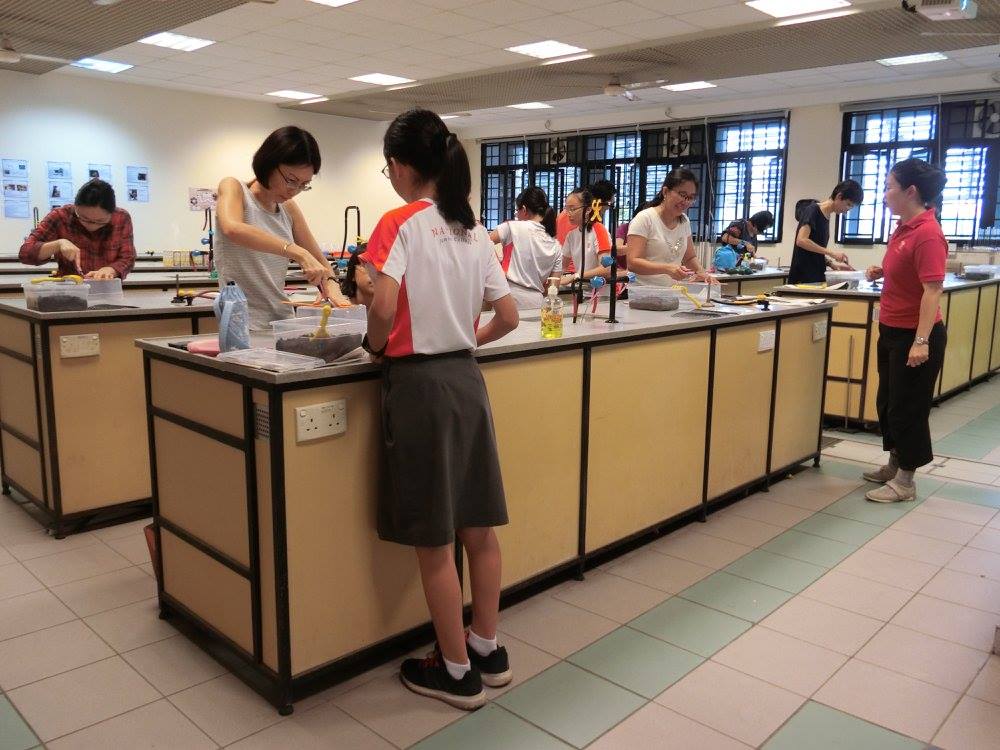 Image via NJC/Facebook.
Image via NJC/Facebook.
At the workshops, Greenlink members teach participants how to start their own vermicompost at home by providing their wisdom and worms.
So far, Greenlink has conducted workshops for the school's own community, various learning institutions from kindergartens, primary and secondary schools, residents from Watten estate where NJC is located at, students from after school-care services, as well as students from the National University of Singapore.
At least 142kg food waste saved
Today, the vermicomposting effort is going well and strong.
The last time they measured, 142kg of food scraps generated from food preparation at the school's canteen are fed to and broken down in the worm factories, Abishekk Sivaraj, 18, revealed.
The students also measured 1,500kg of food waste produced at the school in a year.
What's next?
Moving forward, Tia shared that the goal was to have no food waste within the school itself.
Elaborating on their collective goals, Wang shared that working on the vermicomposting project has led to several personal realisations:
"It made me realise a lot about how, if you look at the process of food preparation, a lot of food is wasted. But it's inevitable in a sense, because it is part and parcel of food preparation. So, what our school wants to do is we want to start small, start within our school community first, and see how we can use vermicomposting to address the problem. And ultimately, like [Tia] said, we want to completely eliminate food wastage from our canteen."
However, the students' ambitions extend far beyond the walls of NJC.
"Our main goal is to allow the whole of Singapore to know about vermicomposting," Tia declared.
All images via Mothership, unless stated otherwise
If you like what you read, follow us on Facebook, Instagram, Twitter and Telegram to get the latest updates.
